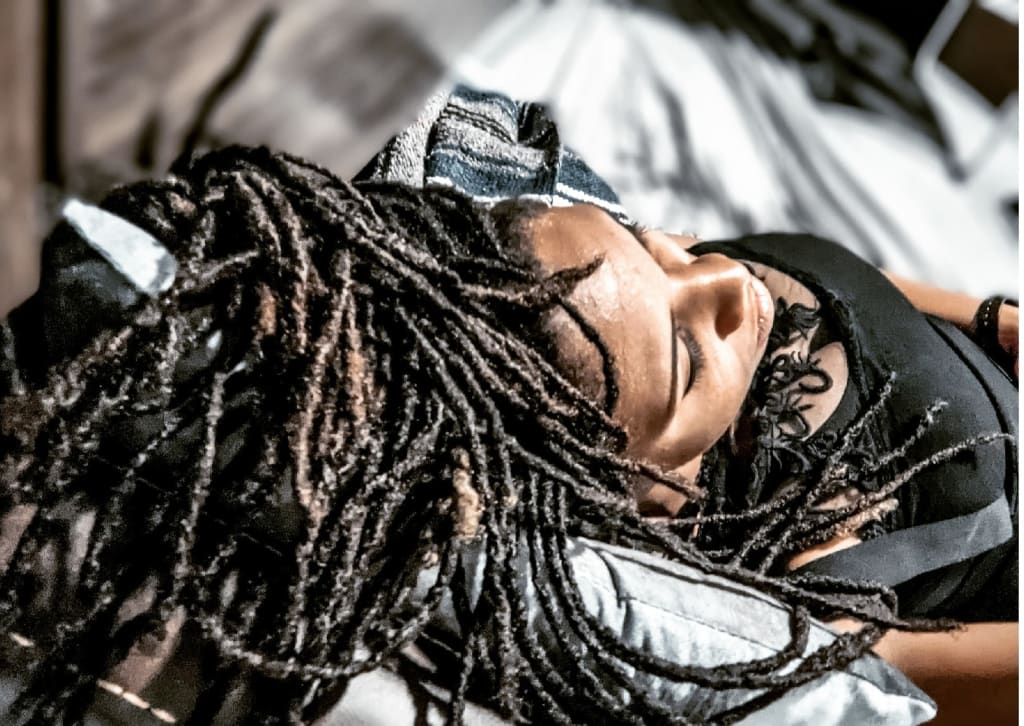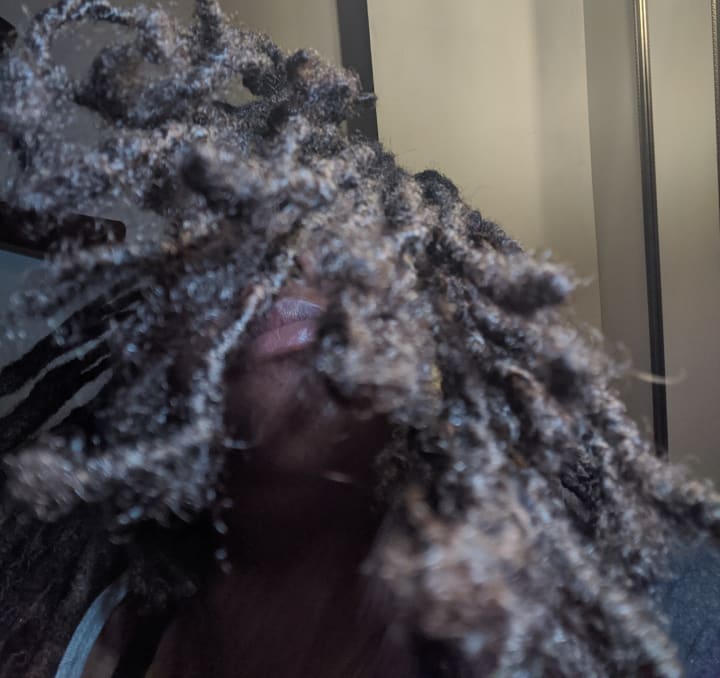Back To My Roots: The Journey to Remarkably Real Black Hair
Learning to embrace my remarkably real and rebellious roots.

I grew up in German Town, Jamaica.
It's an old settlement of Germans who arrived on the island after slavery ended and indentured labor was reinstated. Almost two hundred years later, the small town is now home to many Jamaicans with blonde hair and blue eyes.
It was, without a doubt, an interesting place to live. We all got along well, and as far as I could tell, we had no racial tensions. In fact, despite the prevalence of White features, there was hardly a pure German left. Interracial couples and bi-racial children were the norm.
Today, you can find a rainbow of skin tones among the most beautiful dolls in the store. But, when I was growing up in German Town, that was not the case. Almost every doll I ever had looked like the people of German descent in my town, but none of them looked like me.
Even at three, I noted that this standard of beauty was celebrated by doll manufacturers and Hollywood. But, what about people who looked like me? Did we not fit any standard of beauty? I agonized over this for some time as a child.
When I asked my mom why I didn't look like my dolls, she thought I meant the feminine physique. So, she assured me I would fill out when I hit puberty. She was right—perhaps more right than I would like her to be—but it didn't answer the real question I was asking.
It also didn't help that the rest of my family was more "obviously mixed" than I was. I had the kinkiest hair and was routinely chastised for how much harder it was to take care of than everyone else's.
Who could blame them when they had easy wash-and-go curls?
So, I blamed myself.
In the years that followed, I grew to hate my hair. Like most Black women, I passed through years of looking for new ways to tame it into submission to fit the Eurocentric ideals of what it meant to be not just beautiful, but also professional and classy.
It was high school before the idea first dawned on me that I should give up the chemicals and return to my natural roots. The level of disapproval I received from others was worse than the self-doubt I already had.
It wasn't until my 20s that I finally found the courage to kick the self-doubt and the disapproval to the side. Ironically, my boyfriend at the time―who was White—played a big role in that decision.
"I don't understand," he said to me one day when I explained my predicament. "Why should you be forced to use chemicals to make your hair look like something it's not when that's not what you want. To h*** with them. Do what you want."
It was the first time in my life that any man I dated had supported not just my decision to wear my natural hair, but also my decision to try dreadlocks.
Ultimately, the relationship didn't last, but his encouragement did. I continued with my natural hair journey against the wishes of the American company I worked for.
To appease them and at the advice of my hairstylist, I disguised my "baby dreads" inside braids until they came closer to maturity. Once I had a few inches of growth, I did the big chop.
I still remember the shocked looks on the faces of co-workers when I walked into work that December morning. I also remember the team leader who, perhaps jokingly and perhaps not, threatened to cut my locks if I didn't get rid of them.
It's been eight years since I started my lock journey and six years since I quit that job. Getting dreadlocks is still one of the best decisions I ever made.
Not only did I finally feel free to be myself—uncontained, unrestrained and unapologetically BLACK—but I had finally proven that wash-and-go hair was achievable for kinks.
To people born with wash-and-go hair already sprouting from their heads, this might not seem like an achievement worth noting.
They've probably never spent an entire weekend getting their hair braided.
Have never broken three combs in one sitting.
Never had a detangler become tangled in their hair.
Never had corporations and politicians decide whether they can be hired for wearing their hair naturally.
From a very young age, we are taught that Black hair is difficult hair.
It is untidy hair.
It is unprofessional hair.
It is unemployable hair.
It took me a quarter of a century to unlearn that racist conditioning and embrace my roots as they are.
Now, I know that Black hair is rebellious.
Black hair is proud.
It answers to no one—not even me.
And that is precisely what makes it beautiful, unique, and powerful.
In the past decade, I have witnessed a resurgence in Black women proudly wearing their hair as-is. At the same time, I have watched Black women lose battles with courts over their employability when sporting natural kinks and dreads.
In fact, California and New York are the only U.S. states where it is illegal for corporations to decide not to hire or promote me because I have natural hair or dreadlocks.
Two states. Out of fifty. Let that sink in.
We have a long way to go, not just in America but around the rest of the world. Yes, even in Jamaica, where dreadlocks gained its new-age popularity.
Until then, I will continue to embrace my remarkably real and rebellious roots.
I love them. Don't you?

About the Creator
Alexis Chateau
I like cats, camping and FJ Cruisers. Follow my adventures at www.alexischateau.com.







Comments
There are no comments for this story
Be the first to respond and start the conversation.